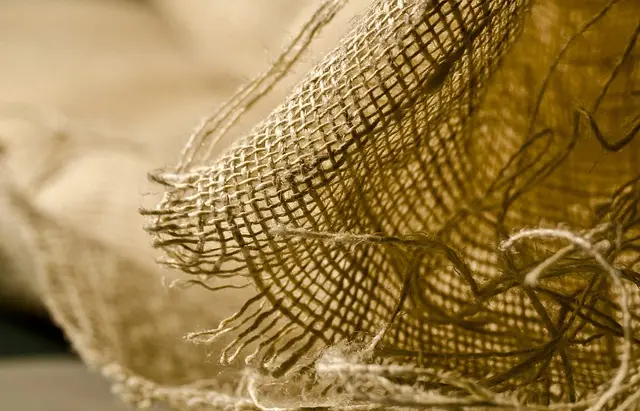Kratom tree seeds from the Mitragyna speciosa plant contain alkaloids like mitragynine and 7-hydroxymitragynine, which may interact with opioid receptors to alleviate muscle soreness post-exercise. Integrating these seeds into a tailored fitness plan can help manage discomfort while maintaining fitness progress, but should be done under the guidance of a certified fitness professional who can consider an individual's specific physical condition and training intensity. It's important to use kratom responsibly, in accordance with legal regulations, and with medical advice due to potential side effects and interactions. This approach aims to support continued muscle development while providing relief but must be managed carefully for optimal and safe results. Kratom tree seeds offer a natural alternative for post-workout recovery when used correctly, and their integration into workout routines should be approached with caution, considering individual responses and overall health. Always consult healthcare professionals before incorporating kratom into your fitness regimen to ensure safety and effectiveness. The potential of kratom tree seeds in managing muscle soreness is an area of interest that calls for further scientific research to clarify their efficacy and safety profile.
Embark on a journey to alleviate muscle soreness through tailored workout regimens that incorporate the benefits of kratom tree seeds. This article delves into the transformative potential of these natural compounds in enhancing recovery and managing post-exercise pain. Discover how to design a workout plan that not only targets your fitness goals but also harnesses the science-backed effects of kratom for superior muscle relief. Unlock the secrets to a rejuvenating exercise routine, customized to your needs for optimal performance and comfort.
- Unlocking Muscle Soreness Relief with Customized Workout Plans Enhanced by Kratom Tree Seeds
- Crafting Your Personalized Routine: Integrating Kratom for Optimal Recovery and Pain Management
- The Science Behind Kratom and Its Role in Alleviating Muscle Soreness Post-Exercise
Unlocking Muscle Soreness Relief with Customized Workout Plans Enhanced by Kratom Tree Seeds

When muscle soreness strikes, individuals often seek immediate relief while maintaining their fitness regimen. Customized workout plans that incorporate kratom tree seeds can be a viable solution for those experiencing post-exercise discomfort. Kratom tree seeds, derived from the Mitragyna speciosa plant, have been traditionally used in Southeast Asia for their potential therapeutic properties. When tailored into a workout routine, these seeds may offer muscle soreness relief due to their alkaloid content, which includes mitragynine and 7-hydroxymitragynine. These compounds are believed to interact with opioid receptors in the body, potentially reducing pain signals and providing analgesic effects.
Crafting a workout plan that complements the use of kratom tree seeds requires careful consideration of the individual’s fitness level, the intensity of their training, and the specific type of soreness they are experiencing. A qualified fitness professional can design a program that strategically incorporates periods of exercise with kratom supplementation to enhance recovery while promoting continued muscle growth and strength development. It is important to note that while kratom tree seeds may offer relief for muscle soreness, their use should be approached with caution and in accordance with local laws and regulations. Users should also be aware of potential side effects and interactions with other substances. As such, incorporating kratom tree seeds into a workout plan should be done responsibly and with the guidance of a healthcare professional.
Crafting Your Personalized Routine: Integrating Kratom for Optimal Recovery and Pain Management

crafting a personalized workout routine that incorporates kratom tree seeds can be a highly effective strategy for muscle soreness relief and optimal recovery. Kratom, derived from the leaves of the kratom tree (Mitragyna speciosa), has been traditionally used in Southeast Asia for its potential pain-relieving and energizing properties. When integrated into a post-workout regimen, kratom may help alleviate the discomfort associated with muscle soreness, allowing for quicker recovery times. It’s important to approach its use with caution and adherence to dosage guidelines, as the effects can vary based on individual physiology and the specific strains of kratom tree seeds utilized.
For those who have experienced muscle soreness after intense exercise, incorporating kratom tree seeds into your recovery routine may offer significant relief. The alkaloids present in kratom, such as 7-hydroxymitragynine and mitragynine, are believed to interact with the body’s opioid receptors, which can lead to analgesic effects. This can be particularly beneficial for athletes or fitness enthusiasts who engage in high-intensity workouts that often result in muscle fatigue and soreness. As with any supplement, it is crucial to consult with a healthcare provider before integrating kratom into your routine to ensure it aligns with your health profile and fitness goals. Additionally, the use of kratom tree seeds should be complemented by other recovery practices such as proper hydration, adequate sleep, and a balanced diet to support overall well-being and muscle recovery.
The Science Behind Kratom and Its Role in Alleviating Muscle Soreness Post-Exercise

The kratom tree, native to Southeast Asia, has long been a subject of interest in botanical and traditional medicine circles due to its seeds containing psychoactive compounds known as mitragynine and 7-hydroxymitragynine. These active ingredients have been the focus of scientific study, particularly for their potential analgesic properties. When it comes to muscle soreness post-exercise, these compounds may play a significant role in alleviating discomfort. The mechanism by which kratom seeds might reduce muscle pain is multifaceted. On one hand, they may interact with opioid receptors in the brain, leading to pain relief effects. On the other hand, their anti-inflammatory properties could help manage the inflammation associated with muscle strain and repair following intense physical activity.
It’s important to approach the use of kratom seeds with caution, as they are a controlled substance in many countries due to their potential for abuse and dependency. However, when used responsibly under professional guidance, kratom tree seeds may offer a natural alternative for managing acute muscle soreness. Users should adhere to recommended dosages and consult healthcare providers before integrating kratom into their post-workout recovery routine, especially if they have underlying health conditions or are taking other medications. The balance between the potential benefits and the need for careful regulation underscores the importance of further research to fully understand kratom’s efficacy and safety in this context.
Customized workout plans, particularly those that incorporate kratom tree seeds, offer a tailored approach to alleviating muscle soreness. By understanding the science behind kratom’s effects and how it can aid in recovery and pain management, individuals can craft a personalized routine that caters to their specific needs. The integration of kratom tree seeds into these regimens not only supports muscle healing but also provides insight into the potential benefits for those experiencing post-exercise discomfort. For those seeking effective relief from muscle soreness without relying on traditional painkillers, considering a workout plan enhanced by kratom tree seeds may be a beneficial addition to their fitness routine.






